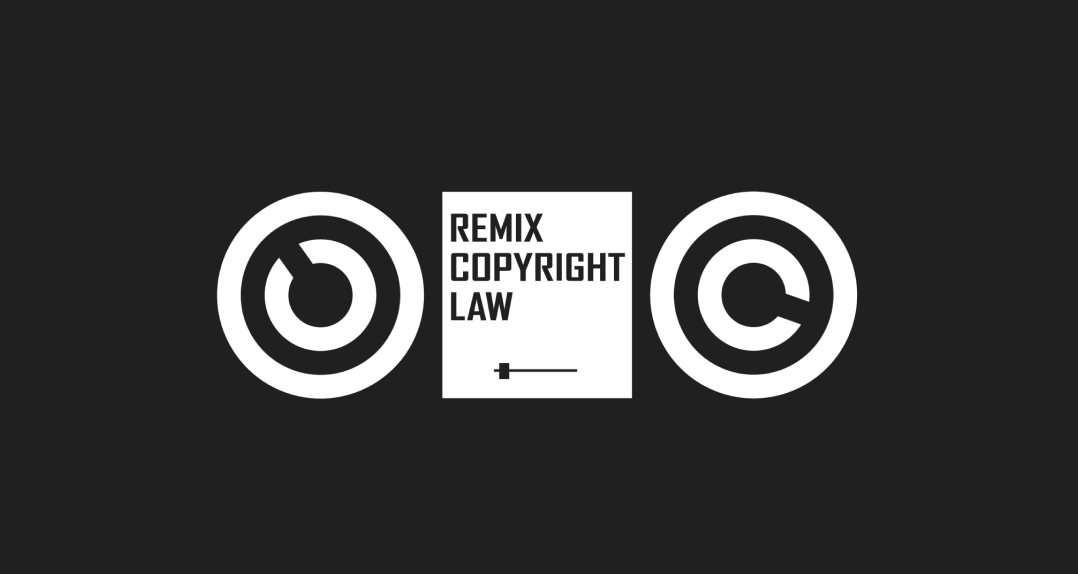Blog
How to remix songs legally?
We all have an obligation when we use music for anything other than listening to it by ourselves
for enjoyment.
When you make a remix, you’re not creating an entirely new work, since you’re basing it off previously recorded material, and you’re not creating a cover version either, since remixing implies that you’ll fundamentally change the way the original song sounds. In essence, you’re combining two legal entities — the original song and your new, remixed version — to create a sort of hybrid entity called a derivative work.
What constitutes an «official» remix? Usually this means either the artist or label has directly contacted you and asked you to remix a song they own, or you’re participating in some sort of remix contest where the owner of the original work has released stems online and asked people to submit their own remixes.
As long as you’re creating an official remix, the likelihood of you running into legal trouble is pretty slim (although it’s always good to keep a written record of any communication about the agreement, just in case.) Where official remixes get more tricky, however, is in determining who will hold the copyright to the derivative work that you create.
When you record a remix, you’re usually involving at least three different rights holders — the owner of the master recording, the owner of the publishing side of the recording, and yourself. In order to simply things, many artists or labels will simply pay DJs a flat fee up front in exchange for creating the remix. This usually makes everything easier for all parties involved, as splitting several different royalty streams three or more ways can be an accounting nightmare. (If you are planning on participating in some sort of royalty sharing agreement, however, make sure you’re registered with all of the appropriate performance rights organizations to ensure you’ll be able to collect the royalties that are owed to you).
Derivative What?
Creating a remix is a much more complex legal issue than simply using a sample in one of your songs. Why? When you create a remix, you’re creating what’s legally called a «derivative work.»When you make a remix, you’re not creating an entirely new work, since you’re basing it off previously recorded material, and you’re not creating a cover version either, since remixing implies that you’ll fundamentally change the way the original song sounds. In essence, you’re combining two legal entities — the original song and your new, remixed version — to create a sort of hybrid entity called a derivative work.
Official Remixes
In order to record a derivative work, you technically need to obtain permission from the rights holders of the original work — namely the artist or label who owns the master recording, as well as whoever owns the publishing side of the song (usually a publishing company, or in some cases, the artist themselves). Because of this, official remixes are much easier to pull off legally than unofficial or «bootleg» remixes.What constitutes an «official» remix? Usually this means either the artist or label has directly contacted you and asked you to remix a song they own, or you’re participating in some sort of remix contest where the owner of the original work has released stems online and asked people to submit their own remixes.
As long as you’re creating an official remix, the likelihood of you running into legal trouble is pretty slim (although it’s always good to keep a written record of any communication about the agreement, just in case.) Where official remixes get more tricky, however, is in determining who will hold the copyright to the derivative work that you create.
When you record a remix, you’re usually involving at least three different rights holders — the owner of the master recording, the owner of the publishing side of the recording, and yourself. In order to simply things, many artists or labels will simply pay DJs a flat fee up front in exchange for creating the remix. This usually makes everything easier for all parties involved, as splitting several different royalty streams three or more ways can be an accounting nightmare. (If you are planning on participating in some sort of royalty sharing agreement, however, make sure you’re registered with all of the appropriate performance rights organizations to ensure you’ll be able to collect the royalties that are owed to you).
Unofficial Remixes
The hardest part of learning how to remix songs legally is learning to safely navigate the world of bootleg remixes. These are the remixes many DJs make on their own, without permission from any of the original copyright holders.Technically speaking, any remix made without the written consent of the original rights holders is an infringement of copyright law, so beware when making bootleg remixes that you’re willingly putting yourself in harm’s way.
In some cases, those accused of creating infringements can cite the Fair Use law, which was put in place to encourage innovation by creating certain exceptions to copyright laws. Usually, Fair Use means that you’re not devaluing the original work in any way, and you’re using the work in an innovative way that either builds on the original work, or can be seen as some sort of commentary on it.
Unfortunately, it’s impossible to tell without taking the matter to court what will constitute Fair Use, so if you want to be safe, it’s probably best to stay away from bootleg remixes altogether. Using the Fair Use defence is also an «affirmative» type of defence, which means essentially that you’re guilty until proven innocent, and not the other way around, so it can be a tricky defence to use in a legal situation.
How to Remix Songs the Safe Way
Keep in mind that the issues discussed here don’t apply when you’re playing live remixes; a live performance is often the best place to make use of your sampling and remixing skills.Hopefully, this article has served as a good primer on how to remix tracks legally. Remember, it’s always best to do your research when it comes to copyright issues, and when in doubt, play it safe or use our services.

